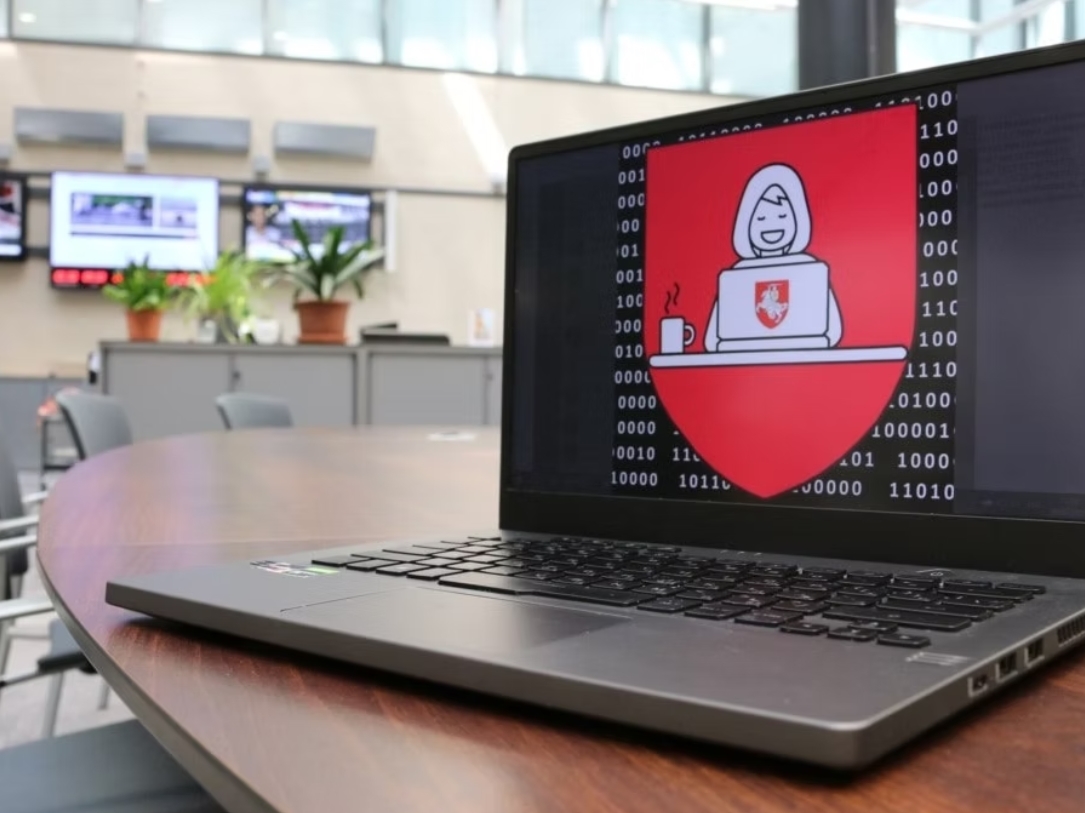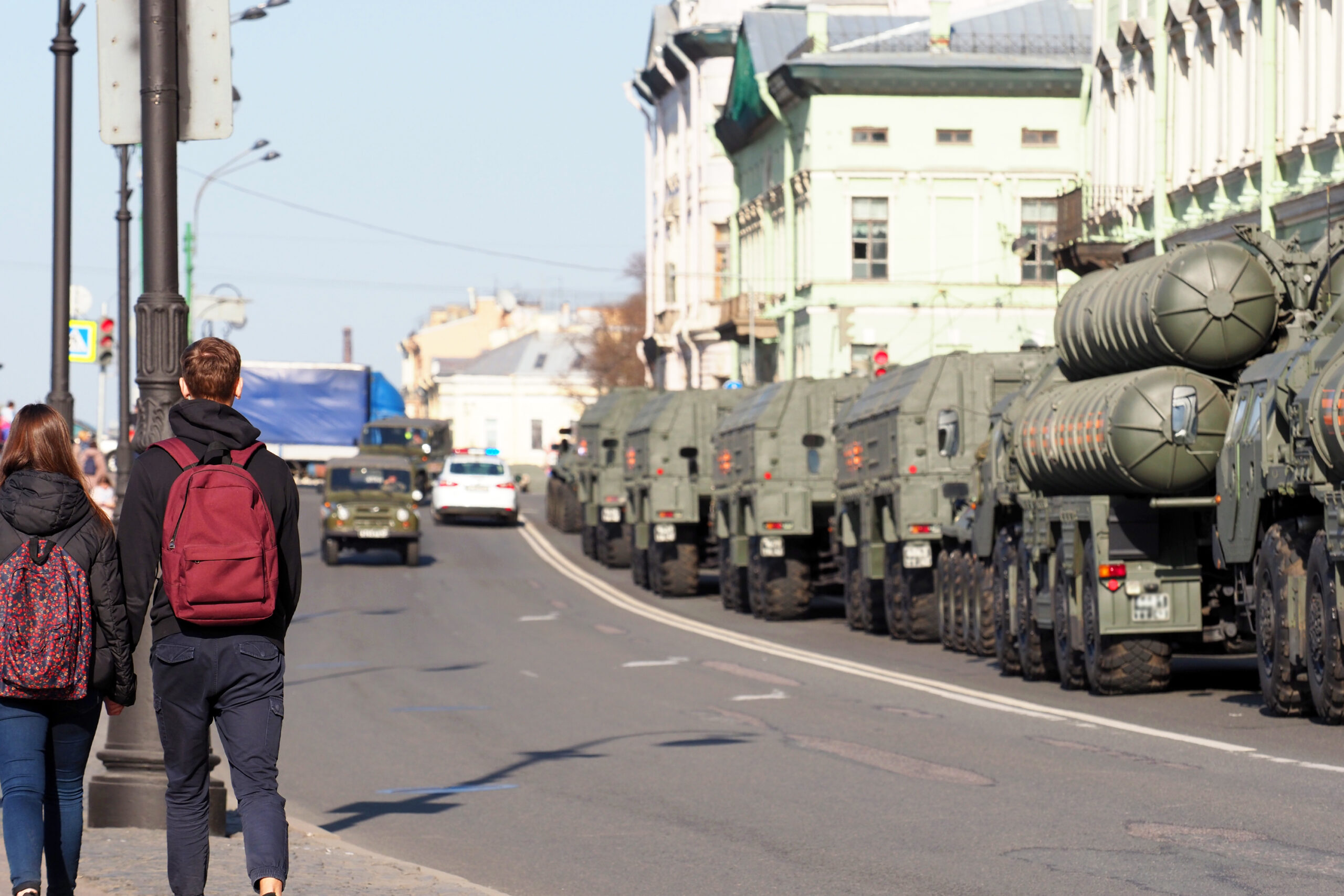DEAR READER,
While everyone is busy admiring that photo op from Kyiv and speculating whether Zelenskyy and Putin will finally meet in Istanbul this Thursday (we are not so sure either), a key development has flown under the radar: Polish voters head to the polls on May 18.
Presidential elections are around the corner, and no, we’re not expecting a Romanian-style plot twist (although we are also watching that coming Sunday). To help you make sense of the race, we asked Iwona Reichardt, deputy editor-in-chief of New Eastern Europe, for an expert opinion on the candidates and what’s at stake.
Also, our latest issue is out! To anyone who observes the situation in Ukraine and ongoing Russian attacks it is unfortunately crystal clear that the main obstacle to peace is the unwillingness to end the war by the Russian Federation. Ukraine, on the other hand, has no choice but to continue its defence and resistance. With or without foreign aid.
Enjoy reading this week’s “brief”!
— Giorgi Beroshvili, Editor
TOP STORIES OF THE WEEK
🇧🇬 Bulgaria’s president calls for referendum on joining the eurozone. President Rumen Radev called it a “test of democracy.” Bulgaria was blocked from joining the eurozone in 2024 due to high inflation, and protests against the move turned violent earlier this year. Despite skepticism from economists and rising nationalist resistance, the new pro-EU government (formed last month) is pushing forward. You might recall we asked about eurozone expansion in our 2025 predictions poll. Bulgaria’s odds of joining still aren’t great… but you never know.
🇺🇦 / 🇷🇺 Zelenskyy said he’s ready to meet Putin in Turkey on Thursday. Putin, in his weekend address, offered Ukraine “serious negotiations,” but did not endorse the 30-day truce proposed by Western leaders. Donald Trump urged Ukraine to accept the talks “immediately,” saying it would determine whether a deal is possible. Ukraine’s Western allies warned of major new sanctions if Russia refuses the ceasefire.
🇵🇱 Poland blames Russia for massive 2024 Warsaw mall fire. Polish PM Donald Tusk said the blaze was a Russian-ordered arson attack. Some suspects are already in custody, with others being pursued. Tusk cited evidence linking the fire to similar attacks in Lithuania carried out by individuals working for Russian intelligence. Poland, as a result, will close the Russian consulate in Kraków.
🇭🇺 / 🇺🇦 Ukraine uncovered a Hungarian spy ring collecting military intel in Zakarpattia. According to the SBU, among the two Ukrainians arrested, one was allegedly recruited in 2021 and paid in cash at a Budapest meeting to expand the network. Hungary’s foreign minister called the claims “propaganda” and expelled two Ukrainian diplomats in retaliation. Ethnic tensions in Zakarpattia have grown over language rights, Hungary’s fast-track citizenship policy, and dual loyalties, with Kyiv accusing Hungary of weaponizing its minority population to block Ukraine’s EU path.
A MESSAGE FROM OUR PARTNER
Looking for unbiased, fact-based news? Join 1440 today.
Join over 4 million Americans who start their day with 1440 – your daily digest for unbiased, fact-centric news. From politics to sports, we cover it all by analyzing over 100 sources. Our concise, 5-minute read lands in your inbox each morning at no cost. Experience news without the noise; let 1440 help you make up your own mind. Sign up now and invite your friends and family to be part of the informed.
EXPERT OPINION
Previewing Poland’s presidential election

From left: Sławomir Mentzen, Rafał Trzaskowski, Karol Nawrocki
On May 18th 2025, Polish voters will return to the polls — this time to elect a new president. With incumbent President Andrzej Duda completing his second and final term, the election marks a significant moment for Poland’s political future. As with much in today’s Poland, public opinion about Duda’s presidency remains sharply divided along political lines. In a strongly polarized society, political identity often matters more than policy outcomes, and voter loyalty to parties tends to remain steady regardless of campaign developments. This dynamic is clearly reflected in the early polling for the presidential race.
The frontrunner — Rafał Trzaskowski, the mayor of Warsaw and candidate of the ruling Civic Coalition (Koalicja Obywatelska, or KO). He is widely supported by liberal, urban voters and represents a pro-European vision for Poland. Trzaskowski previously ran for president in 2020 and narrowly lost to Duda in a highly competitive second round. This year, his campaign appears stronger and more prepared, buoyed by growing support for the Civic Coalition after its success in the 2023 parliamentary elections.
The opponent — Karol Nawrocki, backed by the conservative Law and Justice party (Prawo i Sprawiedliwość, or PiS). Nawrocki presents himself as a defender of traditional Polish values and national identity, often portraying Trzaskowski as disconnected from “real Poland”. However, Nawrocki’s campaign has recently stumbled. A scandal involving an apartment deal tied to him and his wife has cast a shadow over his candidacy. Though once polling close to 30 percent, he now risks slipping further behind if the controversy continues to dominate headlines.
The contender — Sławomir Mentzen, supported by the far-right Confederation (Konfederacja) party. Running on a hard-line libertarian and anti-immigration platform, Mentzen appeals strongly to younger voters. His energetic social media presence — particularly on TikTok — has enabled him to connect with this demographic more effectively than any other candidate. In that digital space, he competes closely with Adrian Zandberg, the left-wing candidate from the Razem party, who also has growing popularity among younger, progressive voters. However, Zandberg has little chance to advance to the second round.
Other candidates in the race include Szymon Hołownia, representing the centrist Third Way coalition, as well as Magdalena Biejat (Left) and Joanna Senyszyn (unaffiliated), the only women in the race. While these figures may contribute to shaping the debate, they currently stand little chance of making it to the run-off. Notably, the field also includes Maciej Maciak, an openly pro-Russian candidate, though his support is negligible and he is unlikely to make any real impact. In short, Poland is not expected to see a scenario similar to the recent Romanian election, where a pro-Russian candidate reached the second round.
Nevertheless, Russian interference in the Polish election remains a real concern. According to Polish officials, cyberattacks and disinformation campaigns have intensified in recent months. Prime Minister Donald Tusk has confirmed that Civic Coalition’s IT systems have been targeted, calling it an act of “foreign interference”. Digital Affairs Minister Krzysztof Gawkowski has warned that the country is facing “an unprecedented attempt by Russia to interfere in the Polish elections” with attacks directed not only at individual parties but also at critical infrastructure, seeking to destabilize public trust and disrupt normal state functions.
The most extreme voice in this election is Grzegorz Braun, known for his far-right, xenophobic rhetoric and staunchly anti-EU views. While Braun’s chances of advancing are virtually nonexistent, his presence highlights the growing influence of illiberal and nationalist narratives in the Polish political discourse.
What to expect?
As things stand, a second round of voting appears inevitable, with Rafał Trzaskowski almost certain to be one of the two finalists. Whether his opponent will be Nawrocki or Mentzen remains an open question. If Nawrocki continues to struggle with the fallout from his apartment scandal, Mentzen could potentially capitalize on the moment and edge into the second round on June 1st.
While Trzaskowski is currently favoured to win in either scenario, recent elections around the world — including in the United States — have demonstrated the danger of underestimating the mobilization power of populist or illiberal forces. In Poland too, the presidency is far from secured until every vote is counted.
— Iwona Reichardt, Deputy Editor-in-Chief at New Eastern Europe
OUR LATEST ISSUE IS OUT

To anyone who observes the situation in Ukraine and ongoing Russian attacks it is unfortunately crystal clear that the main obstacle to peace is the unwillingness to end the war by the Russian Federation. Read more in the latest issue of New Eastern Europe.
ARTICLES OF THE WEEK
OPPORTUNITY OF THE WEEK
IR Career Starters is a free monthly newsletter (sent the first Thursday of each month) full of internships, fellowships, and entry-level roles in international affairs all over the world. If you are looking to land your first job in this field, you have to subscribe! May’s edition is out now, have a look and don’t miss out the deadlines.
CARTOON OF THE WEEK

Do you want to see more of Andrzej’s drawings? Check out our dedicated gallery page featuring his cartoons here.





